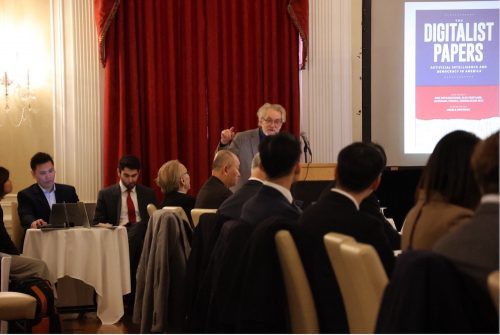Governments are increasingly using artificial intelligence (AI) systems to support policymaking, deliver public services, and manage internal people and processes. AI systems in public-facing services range from predictive machine-learning systems used in fraud and benefit determinations to chatbots used to communicate with the public about their rights and obligations across a range of settings.
The integration of AI into agency decision-making processes that affect the public’s rights poses unique challenges for agencies.
System design decisions about training data, model design, thresholds, and interface design can set policy—thereby affecting the public’s rights. Yet today many agencies acquire AI systems through a procurement process that lacks opportunities for public input on system design choices that embed policy, limits agencies’ access to information necessary for meaningful assessment, and lacks validation and other processes for rooting out biases that may unfairly, and at times illegally, affect the public.
AI systems can be opaque, making it difficult to fully understand the logic and processes underlying an output, therefore making it difficult to meet obligations that attach to individual decisions. Furthermore, automation bias and the interfaces and policies that shape agency use of AI tools can turn systems intended as decision support into decision displacement.
Some governments have begun to grapple with the use of AI systems in public service delivery, providing guidance to agencies about how to approach the embedded policy choices within AI.
The original article was posted at The Regulatory Review.
The Boston Global Forum (BGF), in collaboration with the United Nations Centennial Initiative, released a major work entitled Remaking the World – Toward an Age of Global Enlightenment. More than twenty distinguished leaders, scholars, analysts, and thinkers put forth unprecedented approaches to the challenges before us. These include President of the European Commission Ursula von der Leyen, Governor Michael Dukakis, Father of Internet Vint Cerf, Former Secretary of Defense Ash Carter, Harvard University Professors Joseph Nye and Thomas Patterson, MIT Professors Nazli Choucri and Alex ‘Sandy’ Pentland, and Vice President of European Parliament Eva Kaili. The BGF introduced core concepts shaping pathbreaking international initiatives, notably, the Social Contract for the AI Age, an AI International Accord, the Global Alliance for Digital Governance, the AI World Society (AIWS) Ecosystem, and AIWS City.











